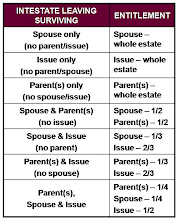Manfred Mann were a British beat, rhythm and blues and pop band of the 1960s, named after their South African keyboard player and founder, who later led the successful 1970s follow-on group Manfred Mann's Earth Band. The Mann-Hugg Blues Brothers (as the band were originally called) were formed in London in December 1962 by keyboard player Manfred Mann and drummer/vibes player Mike Hugg. Born out of the British blues boom then sweeping London's clubs (which also spawned the Rolling Stones and the Yardbirds), the band was completed by Mike Vickers on lead guitar, Dave Richmond on bass, and Paul Jones fronting as lead vocalist and harmonica player; by this point, they had changed their name into Manfred Mann & The Manfreds.
In 1964, the group was asked to provide a new theme tune for the ITV pop music TV series Ready Steady Go!. They responded with the energetic "5-4-3-2-1" which, with the help of weekly TV exposure, rose to No. 5 in the UK charts. After a further self-penned hit ("Hubble Bubble (Toil And Trouble)") the band struck gold with "Do Wah Diddy Diddy", a cover of a minor hit earlier that year by the Exciters. The track, reached the top of both the UK, Canadian, and U.S. charts (The Exciters version had only charted #78 in the U.S.).
During 1965, the group continued to have hits with both self-penned and cover material, their sound increasingly moving away from the blues-based music of their early years to a highly successful pop-soul hybrid. They also reached No.2 in the UK with the controversial "If You Gotta Go, Go Now", which was banned or edited by a number of TV and radio stations. They also hit No. 3 in the UK with the single "Sha La La", which also reached No. 12 in the U.S. and Canada.
Jones stayed with the band for one more year, (long enough to play bass on the band's second UK No.1 single "Pretty Flamingo") (#2 in Canada). Jones was eventually replaced by Mike d'Abo - among those on the shortlist was Rod Stewart - and this was one of the few occasions when a band has successfully swapped lead singers and remained at the top.
With d'Abo as vocalist, the group pursued a softer acoustic pop sound, with a tinge of Dylanesque social comment and surrealism in the lyrics. Their first Fontana Records single was another Dylan cover, "Just Like A Woman". Chart success was uneven for a while, with "Semi-Detached, Suburban Mr James" and "Ha Ha Said The Clown" both going Top 5, but an instrumental "Sweet Pea" only No. 36 and "So Long Dad" missing the Top 50 altogether. However they scored a third No. 1 in 1968 with yet another Dylan song, "Mighty Quinn" (#3 in Canada).
Frustrated with the limitations and image of being seen purely as a hit singles band (their last two albums failed to chart), the group split in 1969, while their final hit, "Ragamuffin Man", was in the Top 10.
Mann went on to write advertising jingles after the group's demise, but still continued to work in the group format. Initially he formed Manfred Mann Chapter Three (with Mike Hugg), an experimental jazz rock band, described by Mann as an over-reaction to the hit factory of the Manfred Mann group. This was, however, short lived and by 1971 they had disbanded and Mann had formed a new group, Manfred Mann's Earth Band.
This group had a UK top 10 hit in summer 1976 and No 1 Billboard Hit in February of 1977, a cover of Bruce Springsteen's "Blinded by the Light". In the 1990s, most of the original 1960s line-up reformed as The Manfreds, minus Manfred Mann himself (hence the name), playing most of the old 1960s hits and a few jazz instrumentals, sometimes with both Paul Jones and Mike d'Abo fronting the line-up. [wikipedia]












2 comments:
Fantastic layout! I really like it.
Hi Tricia Thank you for your inspiring comment and also for dropping by.
Post a Comment